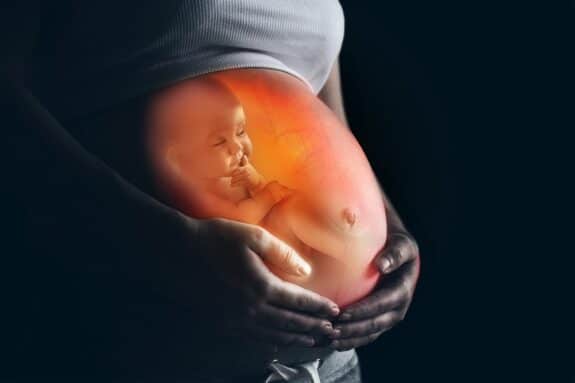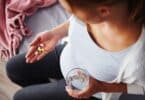Scientists have been scrambling to understand COVID-19 and how it interacts with humanity—and for good reason. Its rapid spread and unprecedented death toll led to worldwide lockdowns. Families were thrust into homeschooling, nursing homes and hospitals cut off all visitation, and expectant mothers began to worry about the health of their unborn babies.
While children under the age of three rarely suffer severe illness if infected by COVID, no one knows if there are any long-term consequences of infection. Moreover, no one knew if the virus could be transmitted to the fetus while in-utero. HIV, Zika, and a few other viruses can pass through the placenta and/or breastmilk, and the results can be devastating.
One small-scale study may not have any long-term answers, but it does suggest that mother to baby transmission may occur if the mother is infected during her pregnancy.
Italian researchers studied 31 mothers who delivered babies in March and April. All had been infected by COVID-19. Evidence of the virus was found in several samples of the placenta, umbilical cord, and, in one case, breast milk. And, in one case, “there’s strong evidence suggesting that the newborn was born already positive because we found the virus in the umbilical cord blood and in the placenta,” Dr. Claudio Fenizia, an immunology specialist at the University of Milan said in an online press conference.
Dr. Asheley Roman, a pregnancy specialist at NYU Langone Health, has been studying the virus in expectant mothers. She and her colleagues have also detected particles of the virus on the fetal side of the placenta, which further supports the theory that in-womb transmission is possible.
Still, experts say mothers should not be alarmed. They believe that, even if the infection does occur, it is unlikely that the illness will cause serious illness in babies. Mothers can also continue to protect themselves through proper social distancing and the use of masks while in public spaces.
“The most important thing that pregnant women need to know is it’s important to socially distance. It’s important to wear a mask, wash their hands,” Roman said. “Women don’t need to be cut off from society entirely, but they should be concerned about the impact of getting COVID on their own health during pregnancy.”
Infected mothers are also advised to wear a mask while breastfeeding to reduce the risk of transmission. This recommendation comes from UNICEF.







